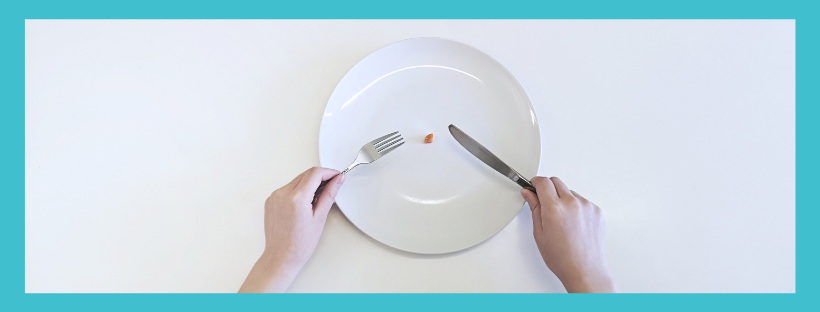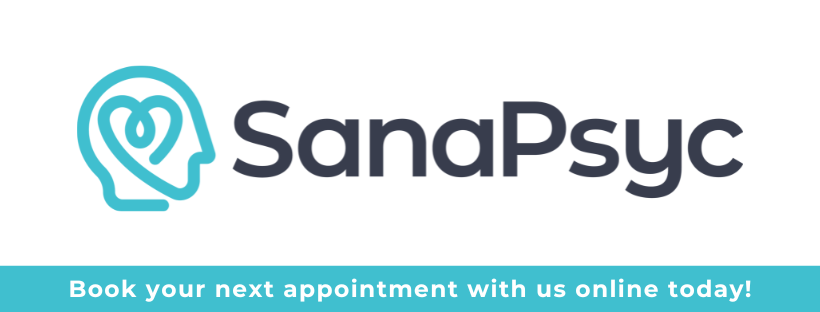Eating Disorder rates are on the rise since the COVID pandemic. It is estimated that at least 600,000-900,000 people are struggling with an Eating Disorder in Canada at any given time and this number is likely higher than we know due to the ongoing shame, secrecy, and stigma that still exists with this health condition. Women are 10x more likely to struggle (or at least be open about their struggle) than men and youth are the highest risk age group. Eating Disorders must be taken seriously as they can be fatal if left untreated, with mortality rates for those with anorexia being as high as 10-15% (stats from Eat Well Health Centre blog).
National Eating Disorders Awareness Week
Eating Disorders Awareness Week runs every year from February 1-7 (National Eating Disorder Information Centre-NEDIC) and is a great time to shine a light on this ever-present and worsening area of mental health. Eating Disorder therapists in Calgary and Canada take to social media to actively showcase information about identification and treatment options for those with Eating Disorders during this week. Since you are here right now, here is some curated information for you and/or your loved ones.

How to Identify If You or a Loved One May Need Support From an Eating Disorder Therapist
There are different manifestations of Eating Disorders as some people struggle more with under-eating, some with binge or overeating, others with purging, others with obsession about healthy/clean eating or a combination of these. As a family member or person living with symptoms, it is not your job to diagnose but if you see some of these tell-tale signs in yourself or another, I would strongly recommend seeking professional guidance and support:
- Significant change(s) in body weight and appearance in a short period of time with no known physical cause
- Reluctance to eat around others
- Hidden eating
- Feeling out of control with food, body image, or compensatory behaviors like exercise or purging
- Using medications to control body weight when not needed or recommended
- Feelings of guilt about food, eating behaviors, workout schedule, etc.
- Feelings of shame
- A history of other addictive or compulsive behaviors (visit our other blog post on ‘The Top 5 Areas Addiction Impacts After Alcohol & Drugs’) to learn more about this connection
- A history of trauma
- Planning your routine and activities around food and/or body
- Feeling uncomfortable in your body
- Secretive behavior around food, exercise, and/or body
- Persistent negative thinking about self
- Strong desire for control
- Regular engagement with ‘diets’ of any kind
- Regular weighing of yourself
- Loss of connection with hunger and satiety cues
- Pulling away from normal activities and/or relationships
For additional signs and symptoms, please visit our Eating Disorder Therapist Calgary webpage here.
Disclaimer: These symptoms are to be used for informal self-assessment and to help you determine if seeking professional care would be a valuable next step. It is not meant to replace formal assessment or professional treatment.
If you are noticing that you are agreeing with some of these symptoms, or even just one, then it would be recommended that you talk with someone who has experience with Eating Disorders to determine next steps for support.

Determining An Appropriate Eating Disorder Therapist
If you are already receiving treatment and seeing an Eating Disorder therapist in Calgary or wherever you call home, that is amazing. Good for you! If you are new to receiving support, that is exciting (and scary, overwhelming, terrifying, you know). Regardless of where you’re at in your journey, here are some tips on finding an Eating Disorder Therapist who is a good fit for you:
Questions for The Therapist:
- Do you offer an initial free consultation to help determine fit?
- What are their professional credentials? (You want to look for someone who is a fully registered and licensed professional as this means they are governed by a legislative body that regulates ethics, standards of practice, and continuing competency)
- How long have they been registered/licensed? (Newer practitioners will not have as much professional experience but may be under supervision or in consultation with an experienced practitioner so you do not need to exclude newer registered professionals from your consideration, but obviously the choice is yours)
- What experience do they have with Eating Disorders? (You will learn about their training, experience, and even lived experience if the professional has this and is willing to share)
- What is their approach to diagnosing and/or treating Eating Disorders? (You will learn if they offer assessment as well as their approach to working with you)
- What are the logistics of sessions? (You will learn about in person vs. virtual sessions, office location, general timelines, recommended regularity of sessions, and fees)
Questions for You to Reflect On:
- After reviewing their website, Psychology Today profile, and/or any other information about the prospective therapist, what did you like? Was there anything you did not like?
- Are you comfortable with the information provided by them on their website, through initial phone or email contact, and/or in the initial consultation?
- How comfortable did you feel interacting with this person? (This is especially important as comfort and fit is an essential component to the effectiveness of therapy).
- If you are already seeing somebody, ask yourself:
- Have you felt comfortable with them?
- Can you be totally honest with them?
- Are you satisfied with the session content and any out of session tasks you’ve been offered?
- Are sessions structured in a way that you are satisfied with?
If you are already seeing an Eating Disorder Therapist in Calgary or beyond and answered ‘no’ to any of the above questions, it may be important for you to either discuss your feelings and/or concerns with the provider or consider finding a new provider if it does not feel comfortable speaking with them.
If you are looking for a provider, I know there are a lot of options out there so take your time, do your research and curate a short-list of 3-5 providers that you can reach out to and see how that goes. Sometimes people have a good online presence but the follow through is not there, sometimes people may not have a great online presence but you value their energy when you communicate with them, and sometimes there is an alignment of both. There are no ‘best’ providers when it comes to Eating Disorders as therapy is all about fit and what is ‘best’ for one person may not be for another. In other words, make this personal relationship personal and find someone that you are comfortable with and can invest in working with.
I wish you all the best in your journey of self-discovery and appreciate you being here reading this information. For additional self-help resources from Eating Disorder Therapist Calgary, along with other Addiction and Mental Health recommendations, please visit our webpage here.
Please remember, the team at Sana Psychological are always here to help. We all offer 15 minute free consultations so that you can ask any questions you would like to of us before embarking on the therapeutic journey. We offer a variety of practitioners, therapeutic modalities, and schedules to suit you and your family’s needs, including Eating Disorder Therapist Calgary. Reach out to us anytime to book an appointment or free 15 minute discovery call with any of our therapists.


